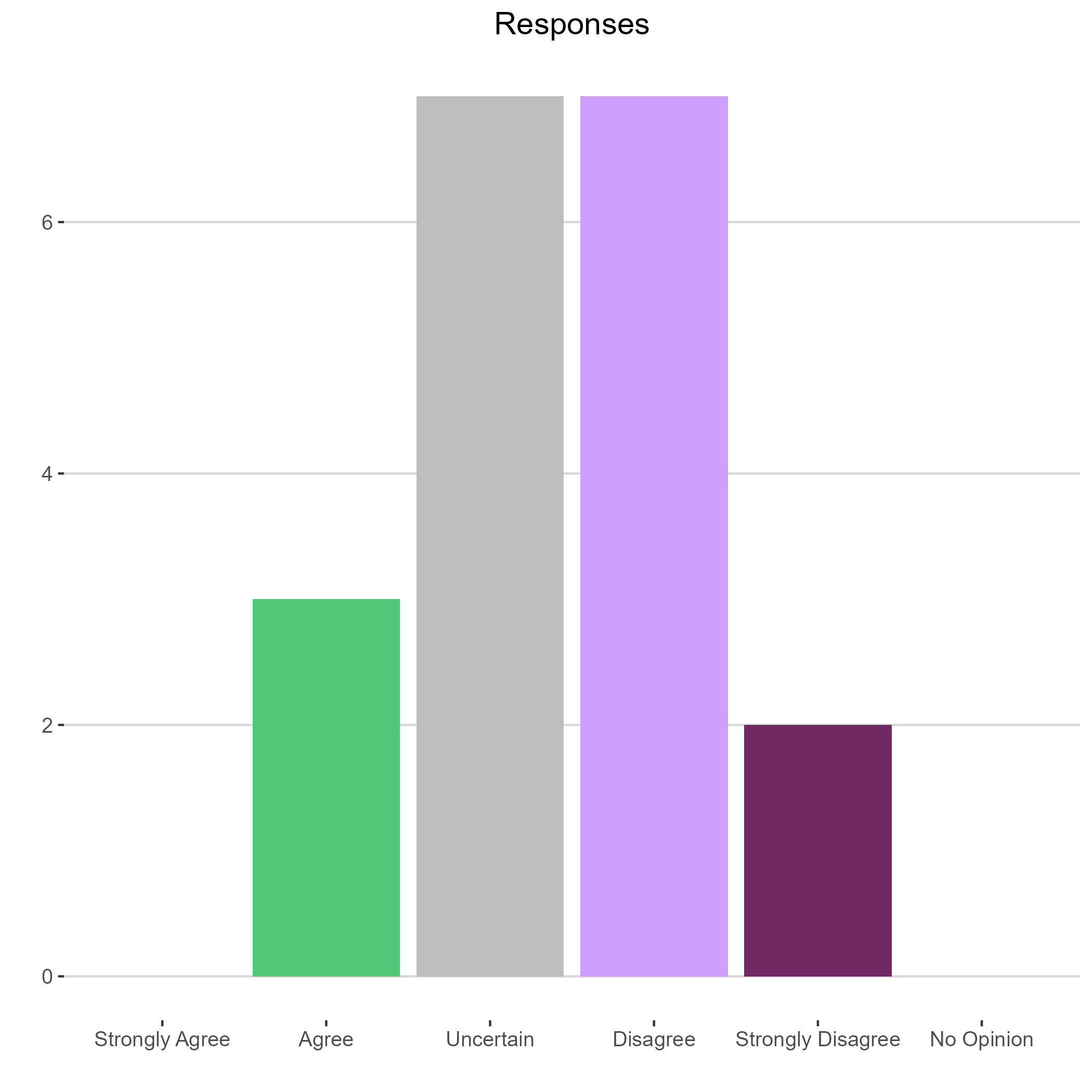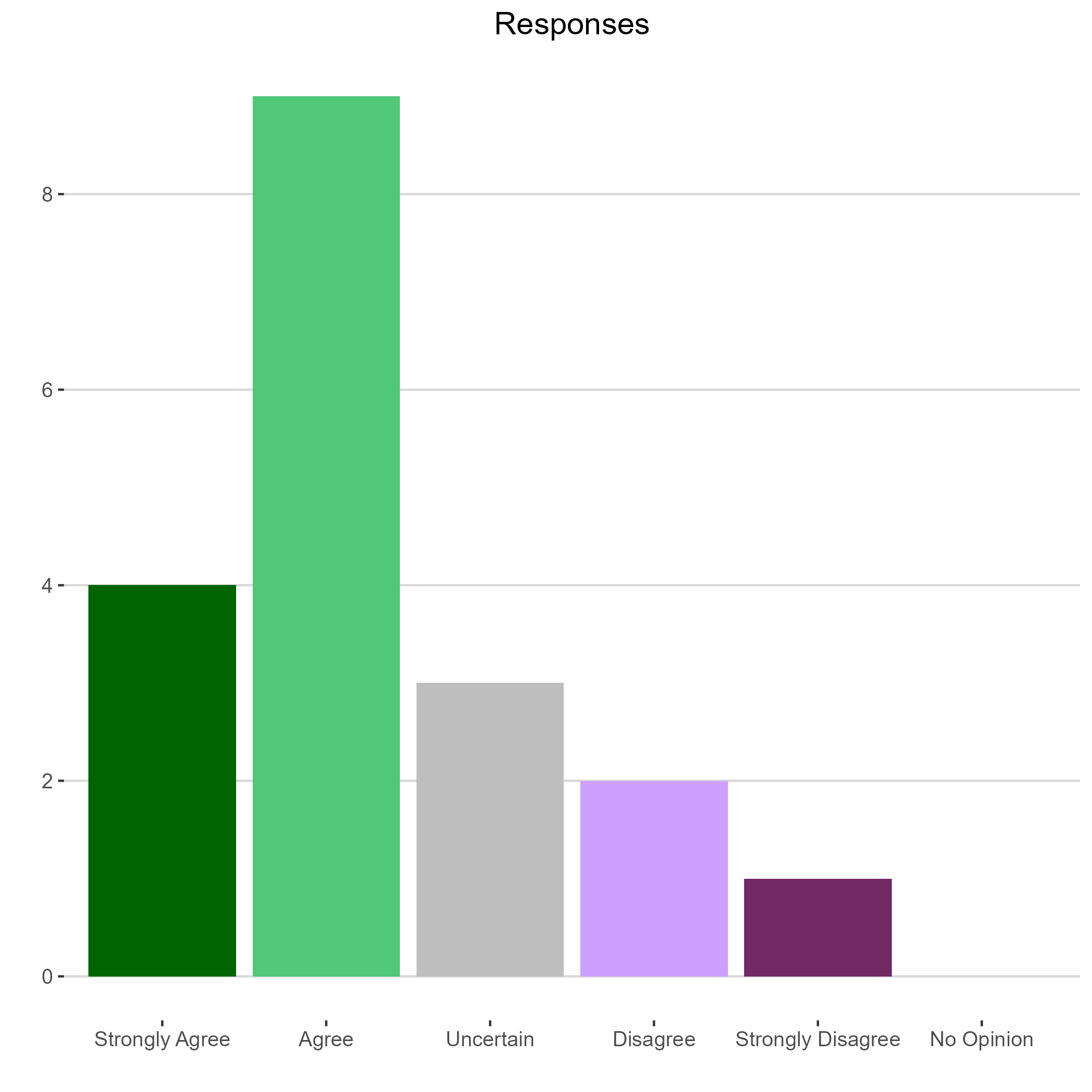| Jonathan Andreas |
Bluffton University |
Agree |
4 |
Most children in America grow up in households that earn well below the median income with parents who did not graduate from college. Most children in America have gotten an educational boost by going to professional childcare centers because the average American kid grows up low-income, low-education household where they get less mental stimulation than they would get in a professional childcare center. Of course, increasing the quality of the childcare is the key and not all childcare centers are high quality. Plus, higher-income, educated parents who choose to stay home to raise their kids provide very high-quality care at home on average, but, sadly, most American kids don't get high-quality care at home, so it is not a very high bar for a professional childcare center to provide more educational stimulation than most kids get at home. |
| David Brasington |
University of Cincinnati |
Agree |
7 |
there is pretty strong evidence that attending a quality daycare causes increased school performance, especially initially, and wages later in life |
| Ron Cheung |
Oberlin College |
Agree |
5 |
|
| Kevin Egan |
University of Toledo |
Agree |
8 |
|
| Vinnie Gajjala |
Tiffin Univeristy |
Agree |
8 |
|
| Nancy Haskell |
University of Dayton |
Agree |
9 |
|
| Paul Holmes |
Ashland University |
Strongly Agree |
8 |
|
| Christian Imboden |
Bowling Green State University |
Agree |
8 |
Should reduce parental stress and free up parental income for other expenditures that can benefit the child |
| Michael Jones |
University of Cincinnati |
Strongly Disagree |
6 |
A growing body of research shows that mothers who spend more time at home with their young children, rather than rushing back to work, see better outcomes for both themselves and their children. E.g. mothers who take more time at home after giving birth experience better mental health and improved well-being. In addition, children who spend more time with a parent in their early years (rather than in institutional care) can realize increased cognitive skills and stronger emotional development. In short, when mothers have the time and support to stay home longer, families thrive. Ohio shouldn't be creating incentives that encourage parents to spend less time with their children. |
| Charles Kroncke |
Mount Saint Joseph University |
Disagree |
8 |
|
| Bill LaFayette |
Regionomics |
Strongly Agree |
9 |
Professional childcare will better prepare children for school. |
| Trevon Logan |
Ohio State University |
Uncertain |
8 |
|
| Michael Myler |
University of Mount Union |
Agree |
8 |
|
| Joe Nowakowski |
Muskingum University |
Agree |
7 |
|
| Curtis Reynolds |
Kent State University |
Disagree |
7 |
I think that quality child care would improve educational outcomes but I am skeptical of this particular program. It is a low amount of funding, it is not clear how many firms will participate and it does not last long. Could be an interesting "pilot" but would need to be expanded to see effects. |
| Albert Sumell |
Youngstown State University |
Uncertain |
5 |
I don't know enough about it to offer an informed opinion on its impact on childhood education. |
| Ejindu Ume |
Miami University |
Agree |
9 |
|
| Kathryn Wilson |
Kent State University |
Agree |
7 |
|






